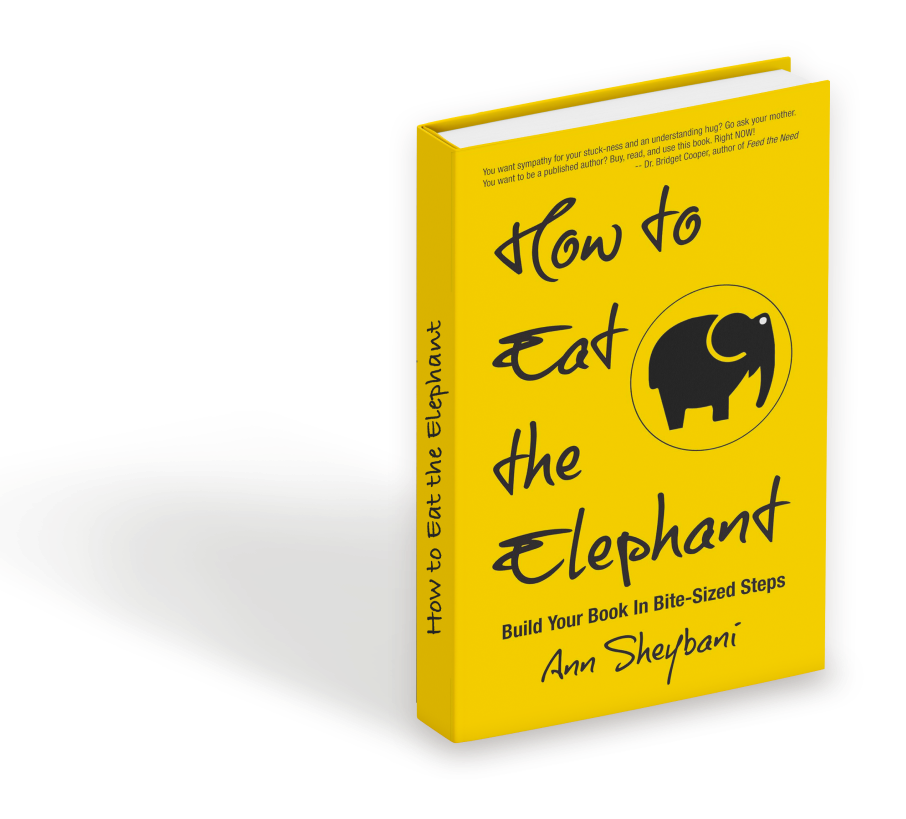Note: Much of this has been taken from a Writer Unboxed post written by Lisa Cron. Though the article is addressed to novelists, the information she shares is relevant to writers of all genres, particularly the client-attracting kind.
Here is a reader’s manifesto – several hardwired expectations that every reader has for every story they hear, whether they are consciously aware of it or not. Meet these expectations, and readers won’t be able to put your book down.
1. The reader expects that the story will start making a point, beginning on page one.
The brain is wired to begin making sense of things instantly. We are constantly on the search for meaning — not in a metaphysical way, but in a how-will-this-affect-me way. When it comes to novels, the effect we’re hoping for is to be swept up into the world of the story. Which is why our first questions tend to be: What’s going on here? Why should I care? What’s at stake, exactly? In other words, we’re looking for a reason to be curious about what will happen. If we have no idea of what’s going on, or what the point might be, we have nothing to be curious about. This is not to say that you have to spell the point out on the first page, but readers need enough of a sense of it –- enough context -– to do three things: grab their attention, make them care, and make them curious about what might happen next.
2. The reader expects that the story will revolve around a single clear, escalating problem that the protagonist has no choice but to deal with.
But here’s the secret: This external problem is what the plot is about. But it’s not what the story is about.
We expect a story to be about one, single overarching problem that then complicates throughout the story. We expect that problem to escalate, but what throws us is when that problem is suddenly back-burnered, or it splits into two separate-but-equal problems, or the problem ends and another begins, or the author keeps throwing random problems at the protagonist, you know, to keep things exciting.
Remember, a story is about how we solve a problem we can’t avoid, and how we change in the process. This escalating problem is the external context within which the story unfolds. But here’s the secret: while it sure sounds like this problem is what the story is about, it’s not. This external problem is what the plot is about. But it’s not what the story is about. The plot is the external manifestation, the thing that forces the protagonist to take action. The real problem they’ve got is internal – that is, how they react to what happens in the plot – and that is what the story is actually about.
(Here’s the question you need to answer for your story: What is the single clear, escalating problem?)
3. The reader expects that the protagonist will enter the story already wanting something, which is what gives true meaning to her goal.
It’s the protagonist’s memories that have taught her what things mean, and that shapes her agenda and drives her ambition.
And yet, writers begin writing novels without a clue as to their protagonist’s accumulation of specific memories. Forgetting that it’s those memories that have taught the protagonist what things mean, and that shape their agenda and drive their ambition. Which is why at the beginning of a story that is exactly what every protagonist must have: a specific agenda, which is to say, something they already want very badly.
(Here’s the question you need to answer for your story: What does your protagonist want above all else? What need is driving him or her?)
4. The reader expects the protagonist will already have a deep-seated fear, misbelief or wound – i.e. an inner issue — that keeps him from easily achieving that goal.
Just as we all have an agenda, we all have things that hold us back from carrying it out. Not simply external reasons, like, “I’d love to climb Mt. Everest, but I’d probably have to get into shape to do it.” But internal reasons – like why I resist getting into shape (oh wait, did I say that out loud?). Point being, this is what your story is actually about – an internal change. If it was simply external, even a stranger could take me aside and say, “Hey, then begin exercising, and you’ll be in shape in no time,” and I’d slap my forehead and go, “Why didn’t I think of that? Problem solved!” As if, right?
We come to a story for inside intel, the real reason we do things, not the surface reason. We don’t come for insight into what people do, we come to find out why they do it.
That’s what your story is actually about. So not only does your protagonist need to come in wanting something, but they also need a deep-seated misbelief that keeps them from having a shot at getting it. After all, if getting what they want was easy, there’d be no problem and therefore no story.
(Here’s the question you need to answer for your story: What deep-seated issue or belief keeps gumming up the works for your protagonist?)
5. The reader expects the things that happen in the plot to force the protagonist to confront and overcome her inner issue, something she’s probably spent her whole life avoiding.
Ahhh, now we come to why you can’t start with just a “plot.” The answer is simple: we’re not wired to care about what happens, per se – even if we’re talking war, peace or a midnight visit by cuddly aliens. We’re wired to care about how those things will affect us, given our agenda (what we want, and what we’re afraid of). In a story, the reader evaluates everything that happens based on one thing: how it affects the protagonist, given her agenda. That’s what gives everything in the plot its meaning and emotional weight – nothing has meaning in and of itself. So when you’re writing a novel (and if you hear a familiar drumbeat here, you’re right) you have to know a whole lot of specific story-related things about your protagonist’s past before you can write word one – or even begin to build the plot.
In a story, the reader evaluates everything that happens based on one thing: how it affects the protagonist, given her agenda.
Note that this does not mean that you need to write a “character bible” that catalogs exactly what your protagonist wears on Saturdays and eats for a snack after soccer practice. What you actually need to do is write fleshed out scenes about the origin of their desire and their misbelief – scenes that will help you figure out what your story is about and where it starts and where it ends. And, most important, these scenes will then create the lens through which your protagonist sees, and evaluates, the world you’ll plunk her into. Many of these scenes will end up in the book itself, as you’ll soon see. Worrieth not, none of it will go to waste.
(Here’s the question you need to answer for your story: What survival mechanisms or coping mechanisms end up getting destroyed?)
In short:
- What is the single, clear escalating problem in your story?
- What does your protagonist want above all else? What need is driving him or her?
- What deep-seated issue or belief keeps gumming up the works for your protagonist?


